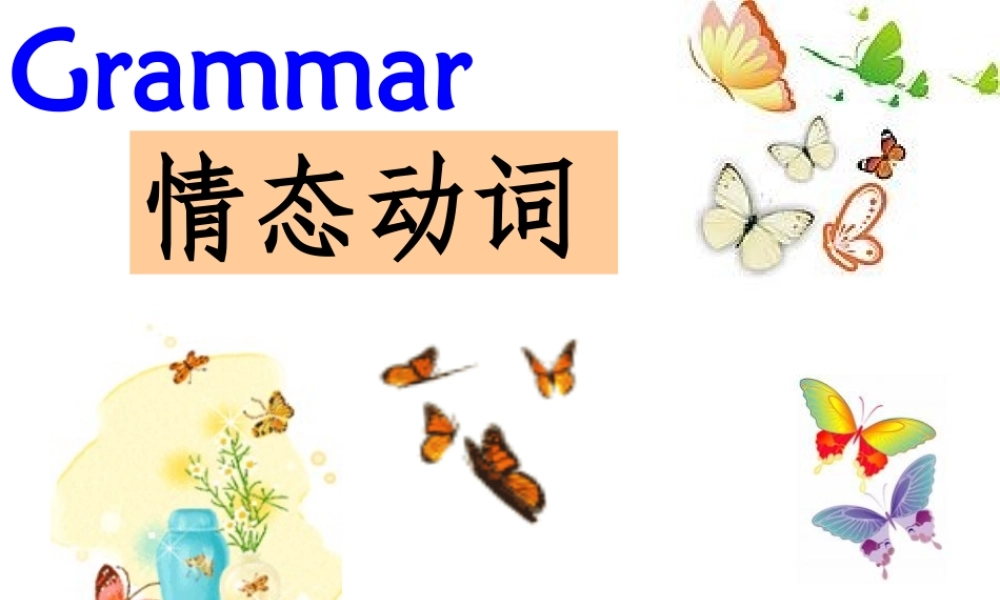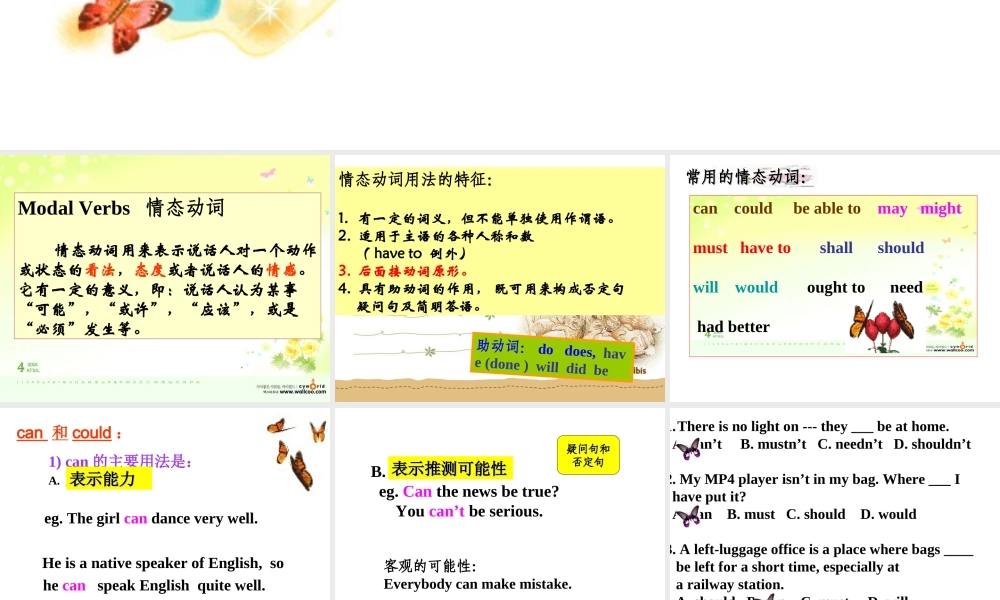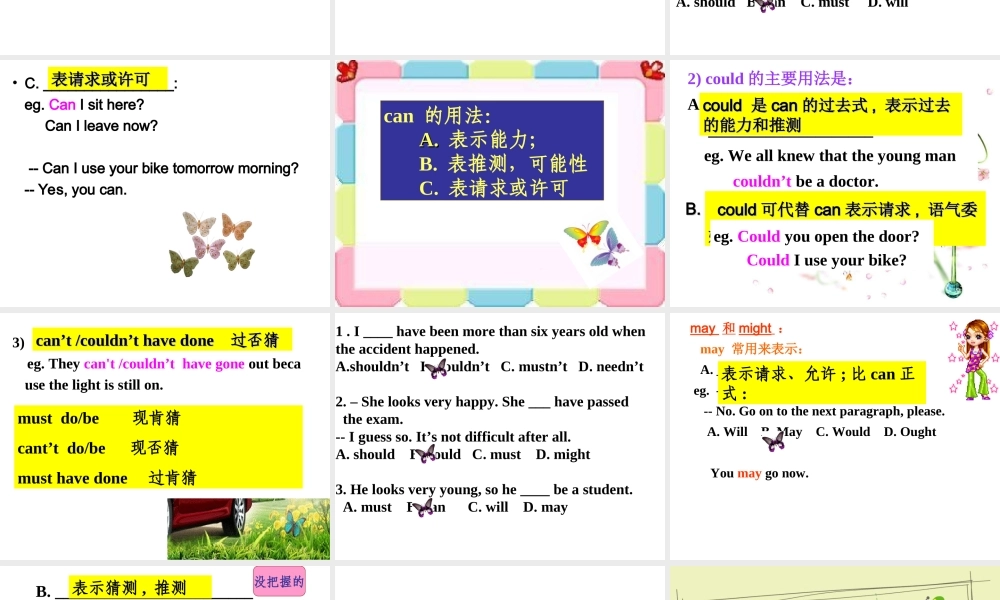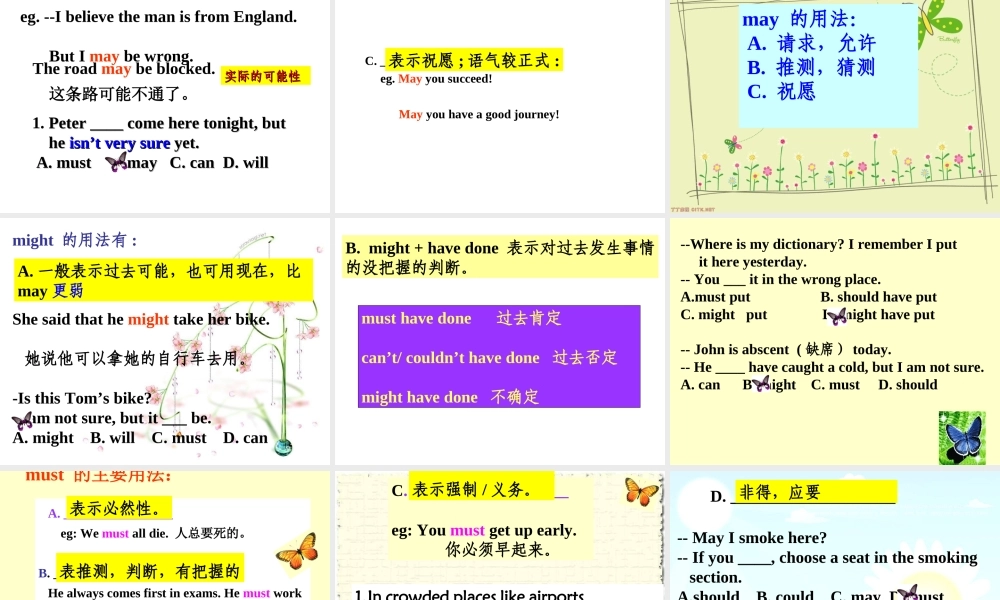Grammar情态动词Modal Verbs 情态动词 情态动词用来表示说话人对一个动作或状态的看法,态度或者说话人的情感。它有一定的意义,即:说话人认为某事“可能”,“或许”,“应该”,或是“必须”发生等。情态动词用法的特征:1. 有一定的词义,但不能单独使用作谓语。2. 适用于主语的各种人称和数 ( have to 例外)3. 后面接动词原形。4. 具有助动词的作用, 既可用来构成否定句 疑问句及简明答语。 助动词: do does, have (done ) will did be can could be able to may might must have to shall should will would ought to need had better 常用的情态动词:常用的情态动词: 1) can 的主要用法是: A. ___________ : eg. The girl can dance very well. He is a native speaker of English, so he can speak English quite well. can 和 could :表示能力表示能力B. _____________ : eg. Can the news be true? You can’t be serious. 表示推测可能性表示推测可能性客观的可能性:Everybody can make mistake.疑问句和疑问句和否定句否定句1.There is no light on --- they ___ be at home. A. can’t B. mustn’t C. needn’t D. shouldn’t2. My MP4 player isn’t in my bag. Where ___ I have put it? A. can B. must C. should D. would 3. A left-luggage office is a place where bags ____ be left for a short time, especially at a railway station. A. should B. can C. must D. will • C. ________________: eg. Can I sit here? Can I leave now? -- Can I use your bike tomorrow morning? -- Yes, you can.表请求或许可表请求或许可can 的用法: A. A. 表示能力; B. 表推测,可能性 C. 表请求或许可2) could 的主要用法是:A. ______________________________ ____________________: eg. We all knew that the young man couldn’t be a doctor.could could 是是 cancan 的过去式的过去式 , , 表示过去 表示过去 的能力和推测的能力和推测 couldcould 可代替可代替 cancan 表示请求表示请求 , , 语气委语气委婉婉eg. Could you open the door? Could I use your bike?B.B...




